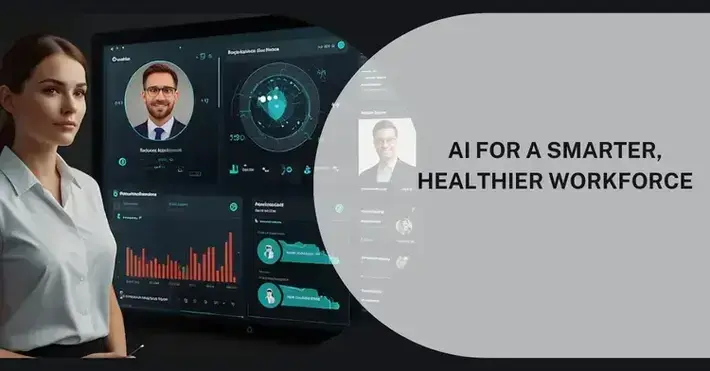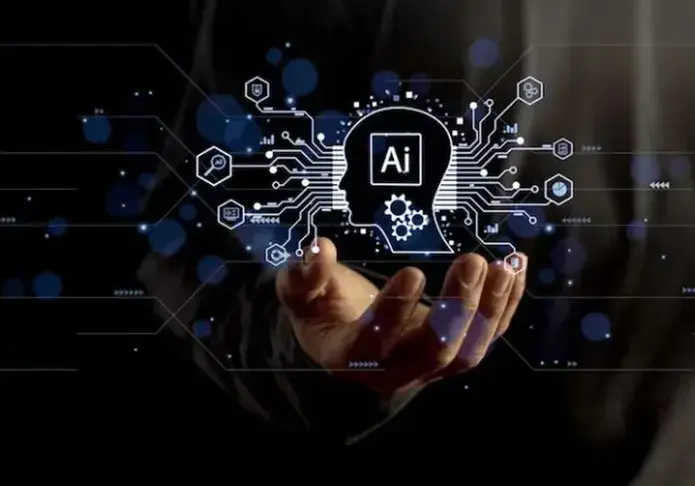The Future of Attendance Management: AI and Beyond
Published: Oct 28, 04:50 PM

As organizations increasingly adopt digital transformation strategies, attendance management systems are no exception. Moving beyond traditional time-clocking systems, AI-driven attendance tools are helping reshape the workforce management landscape in profound ways. Here’s an in-depth look at how AI is transforming attendance management and the exciting innovations on the horizon.
The Evolution of Attendance Management: From Manual to Automated
Traditional attendance management relied heavily on manual entries or simple punch-card systems. These methods were prone to human error, manipulation, and inefficiencies. With AI, attendance management has taken a quantum leap into automation, using algorithms that can track attendance without constant human intervention. This shift has reduced operational errors, saved time, and decreased the chances of time-theft, laying a new foundation for employee accountability and productivity.
AI-Driven Biometric Systems: Raising Accuracy and Security
AI has unlocked advanced biometric solutions like facial recognition, fingerprint, and even retina scans for attendance verification. Facial recognition, powered by machine learning, accurately identifies individuals, even adapting to changes in appearance over time. This ensures accurate attendance tracking, minimizes errors, and enhances security. By removing the need for cards, badges, or PINs, AI-driven biometrics offer a frictionless experience that can handle high-traffic areas with ease and accuracy.
Adaptive Learning and Behavior Analytics
AI systems have the potential to "learn" from employee behavior, adjusting attendance requirements or identifying anomalies. For instance, if an employee habitually arrives late, the system can flag patterns and alert management, creating opportunities for intervention or support. Machine learning algorithms can also detect unusual patterns, such as extended breaks or unusually long working hours, which might indicate burnout or workplace stress, helping HR take proactive steps to improve employee wellness.
Enhanced Flexibility for Remote and Hybrid Work Models
With the rise of remote and hybrid work, traditional attendance methods have limitations. AI-driven attendance systems that operate across various locations enable real-time tracking of distributed teams. Some AI systems now integrate with task management tools to provide insights into productivity without intrusiveness. This approach allows employees to enjoy flexibility while providing managers with clear data on performance, collaboration, and attendance.
Predictive Analytics for Workforce Planning
One of the most promising aspects of AI in attendance management is predictive analytics. By analyzing historical attendance data, AI can identify trends and forecast future attendance patterns. For instance, if a particular season shows a rise in absenteeism, AI can provide predictions for staffing needs, helping managers adjust shifts and ensure sufficient coverage. Predictive tools can also identify which employees are at risk of burnout or disengagement, allowing HR to proactively provide support or alter workloads.
AI-Powered Shift Scheduling and Optimization
AI isn’t just about monitoring attendance; it can also be used to optimize it. Intelligent scheduling tools leverage employee preferences, availability, and past attendance patterns to create shift schedules that reduce conflicts and maximize productivity. For industries like healthcare, retail, and hospitality, where shift coverage is crucial, AI-driven scheduling can significantly improve operational efficiency, reduce labor costs, and boost employee satisfaction by offering flexibility and fair shift distribution.
IoT Integration and Geofencing for Enhanced Accuracy
IoT devices and geofencing are becoming essential components of attendance management, particularly in large enterprises with multiple locations. Geofencing allows employees to clock in automatically when they enter a defined area, enhancing accuracy while reducing manual inputs. Combined with wearables, IoT can track employee presence without the need for complex setups or extensive data entry, allowing organizations to streamline attendance processes further.
Data Privacy and Ethical Considerations
As AI collects more data, privacy concerns grow. Companies must navigate employee data responsibly, ensuring compliance with regulations like GDPR, CCPA, and others. AI-driven attendance systems are being designed with built-in anonymization and encryption features to protect data. Furthermore, transparent policies that inform employees about what data is collected and how it’s used help maintain trust, making ethical AI use in attendance management a priority.
The Future: AI-Assisted Employee Well-Being
Attendance management is beginning to intersect with employee well-being initiatives. AI systems could soon incorporate health indicators from wearables to monitor and manage employee wellness. For instance, stress levels or sleep patterns could be integrated to better understand how physical and mental health impact attendance and productivity. Such systems can create a culture of care, where attendance is no longer just about presence but about well-being and support.
Conclusion: A Smarter, Holistic Approach to Attendance Management
The future of attendance management goes beyond mere clocking in and out. AI-powered systems are set to redefine how organizations approach productivity, employee engagement, and workforce planning. By merging attendance data with behavioral and wellness insights, AI is poised to become a tool that supports not just operational efficiency but also fosters a positive work culture. As AI and IoT continue to advance, organizations that adopt these intelligent systems will likely lead the way in creating workplaces that are adaptive, responsive, and centered on holistic employee management.
Key Takeaways
- AI is transforming attendance from mere time-keeping to a rich, data-driven process that enhances productivity and engagement.
- Predictive analytics and adaptive learning allow AI to identify patterns and optimize scheduling.
- Privacy and ethical AI usage will be central as organizations navigate data collection responsibly.
- Privacy and ethical AI usage will be central as organizations navigate data collection responsibly.
As AI-driven solutions continue to advance, attendance management will become an integral part of a larger, interconnected ecosystem focused on productivity, well-being, and operational excellence.
Top Blogs
Published: Oct 25, 2024

Essential Tips for a Successful Attendance Management System Implementation
Published: Oct 16, 2024

How AI-Based Facial Recognition is Enhancing Visitor Management
Published: Oct 7, 2024

Zero Queue Attendance Management: A New Standard for Speed and Security
View All
